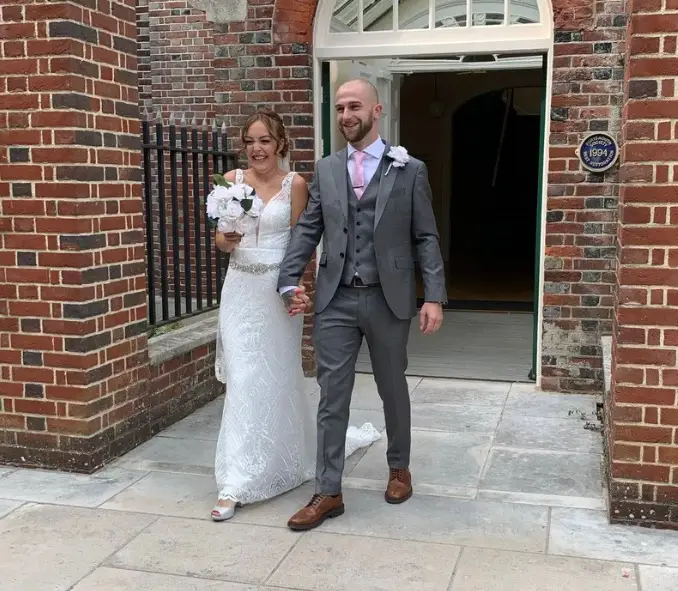
The family of a mother-of-two who died in Turkey have told of their turmoil after allegedly discovering her heart was 'missing'.
Beth Martin, from Portsmouth, had travelled to the holiday hotspot with her husband Luke and their two young children on 27 April and began feeling unwell upon her arrival.
By the following morning, she had become 'delirious', leaving her husband frantically trying to contact medics until he eventually sourced an ambulance to rush his partner to hospital.
A GoFundMe post said that Luke was left in the dark about Beth's care, claiming he was 'banned from seeing her', while he struggled to communicate with hospital staff due to the language barrier.
Advert
According to reports, the 28-year-old was later transferred to the intensive care unit while her husband went back to the hotel with their two children - aged eight and five - as their two grandmothers flew to Turkey.
The following day, it emerged that Beth had been sent to another hospital due to 'concerns with her heart' without the family's knowledge before they were suddenly informed that she had passed away that morning.

Ultimately, Luke facilitated his partner's journey home by himself, forking out thousands of pounds for her body to be flown home, as the firm he had purchased travel insurance from told him it could 'take weeks'.
An autopsy was then conducted back in the UK, which was the 'final blow' for Beth's relatives - as it is said to have revealed that her heart was 'missing'.
"The Turkish hospital has removed it," the GoFundMe page alleges. "No explanation. No consent. They have invaded her body and they have TAKEN her heart. Her heart. The piece of Beth that was more treasured more than any other."
Beth's loved ones claim that the hospital in Turkey, which remains unnamed, is being investigated for potential negligence as a result of her death.
In the tragic instance that someone passes away while abroad in Turkey, the UK government have listed what the process would entail.
What is the government's advice?
According to the government website, you should contact the person's insurance company - if they have it - as soon as possible once they die.
The firm can then appoint a funeral director in Turkey and the UK, who can help you handle things from there and may also cover the cost of repatriating the body, as well as possible medical, legal, interpretation and translation fees.
You must then register the death - and in Turkey, deaths are recorded by hospitals, forensics units, or prosecutors, depending on the circumstances, which is then passed onto the local registry office.

The registry office can then administer a local death certificate to the next of kin, the appointed local funeral director or a solicitor - and you can get in touch with the Turkish embassy in the UK if you need help with this part.
This death certificate, known as Formul C, does not explain the cause of death, however, a post mortem can sometimes be conducted by Turkish authorities.
This may take place if the 'cause of death is unknown, unnatural, sudden or violent', and the Foreign, Commonwealth & Development Office cannot stop or interfere in the process of this.
The government website further states: "Small tissue samples and organs may be removed for testing without the family’s permission. You will not automatically be told if this happens. If organs are removed they will normally be returned before the person’s body is released for burial.
"In exceptional circumstances body parts may be kept without permission. This might happen if further investigation is needed."
Brits have to apply to the Turkish court who is handling the case if they want to copy of the post-mortem report, or you can contact the coroner in the UK if the body has not yet been repatriated.
If you haven't taken out an insurance policy before travelling, you will need to find an international funeral director - but there are charities and organisations who can assist you.
Finding the right people

While navigating such a tough time, it's important to be in touch with the right people.
The government explains that a Turkish translator can be helpful to assist you in 'understanding Turkish rules' or 'getting documents translated'.
Likewise, a lawyer with knowledge of the Turkish legal system can also be beneficial to enlist if one is needed. You also need to inform the UK authorities of the death of a British national when someone passes away abroad.
If you still need some assistance, you can contact the FCDO for further advice, as well as the nearest British embassy.
Topics: Health, World News, UK News, Travel